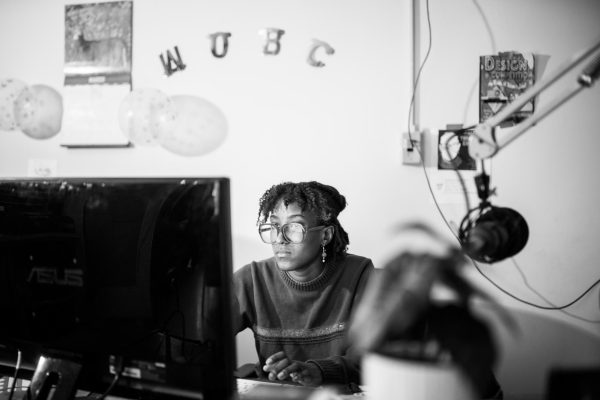Oberlin Must Always Hold Sexual Assaulters Accountable
Editor’s Note: This piece contains mention of sexual assault.
Do you remember the moment you received your Oberlin College acceptance letter? I was on the train back home when I saw the notification appear in my inbox. I had been anxiously refreshing my email every day for the entire week hoping to get this very alert, and it was finally here. I was so giddy that I began jumping up and down in the middle of the crowded Metro car. I knew Oberlin was the perfect choice for me, and I felt ready to begin a new, exciting chapter of my life.
That excitement transferred over to the late days of August when move-in day was finally upon me. I could not wait to start classes, meet new people, and explore my newfound independence.
After the first week of school had ended, I was ready to start having some fun exploring the social aspect of college. When my new friends invited me to a party, I quickly agreed.
On the way back to our dorm at the end of the night, we ran into a sophomore who we allowed to tag along. After about 15 minutes, he said he was not feeling well. I offered to make sure he returned to his dorm safely, and he accepted. He then sexually assaulted me.
The attack changed my life overnight. The parts of me that had been occupied by high hopes and ambitious goals for my future were suddenly replaced by shame, embarrassment, and fear. I had not been naïve to the prevalence of assault on college campuses before that night, but I never expected that it would happen to me.
I began finding it difficult to reconcile Oberlin’s reputation as a progressive institution with my personal experience, which has caused me a great deal of pain. The school’s narrative that sexual assault was less common here than at other colleges did not fit with my experience.
I attempted to go about my life as usual and attribute the assault to nothing more than a bad dream because doing so was easier than accepting that something so terrible had happened. But I was just beginning to experience the aftershocks of trauma, and the symptomatic anxiety, hypervigilance, depression, and insomnia became increasingly difficult to ignore. When I saw my attacker for the first time a week after the event, I had a panic attack so intense that I fainted three times consecutively in the middle of DeCafé.
From that day on, I began seeing him more, and those encounters started to impede my daily life. I was constantly on edge around other students and incapable of investing energy to forge new relationships, which left me increasingly isolated. Getting out of bed in the morning, attending classes, and completing my coursework became a daily struggle. I began to worry about my safety and the safety of others who might encounter my attacker, so I decided to file a Title IX report.
Initially, the process seemed better than what I was anticipating. The Director for Equity, Diversity, and Inclusion and Title IX Director, Rebecca Mosely, stressed her desire to help me and emphasized that whichever type of report I decided to file, I would have her support.
I eventually decided to file an informal report because there was no physical evidence of the assault, and I did not want to endure a formal investigation just to be let down. My goal was to achieve some sort of justice for myself and ensure that should the student assault someone again, Oberlin would ensure that he faced the appropriate consequences.
In March, I ran into a mutual friend who was aware of the assault. We had not spoken in months, and during our conversation, we discussed how I was doing after that night. The following day, that same friend contacted me to tell me that a friend of hers had also been assaulted — by the same student.
I agreed to speak to the other student who had also been assaulted, and upon meeting her, she revealed her fears about filing a report. When I told her that my report could help an investigation into her case and discussed my experience with Title IX, she decided to speak with Rebecca Mosely as well.
After this second report and the months of negative emotions that resurfaced, I would like to be able to say that Oberlin took appropriate action and that our assaulter faced consequences. Unfortunately, I cannot.
Instead of anything resembling justice and fairness, the Office of Equity, Diversity, and Inclusion gave me a misleading description of a no-contact order after I requested one this semester, while the student who had assaulted the two of us does not appear to have faced any significant disciplinary action. Oberlin is fully aware that it has a repeat sexual offender who is an active member of the community roaming its campus, yet it has seen it fit to mete out punishments that amount to nothing more than a slap on the wrist, if that.
I understand that Title IX rules are complex, but I also recognize that dangerous behavior will not be stopped without consequences. If the student who assaulted us faces none, he is likely to repeat his offense. Indeed, considering he has committed at least two assaults within the span of seven months, I see no reason to expect him to stop.
Should he assault someone else, Oberlin will be to blame. I am left at the end of my first year wondering how many times my pain will be dredged up and how many reports will be needed before our attacker faces meaningful consequences. If my experience is any indication, I am guessing that number is unlimited. The girl who excitedly danced on the Metro last year has been replaced with one let down by the very institution she was once thrilled to attend.


